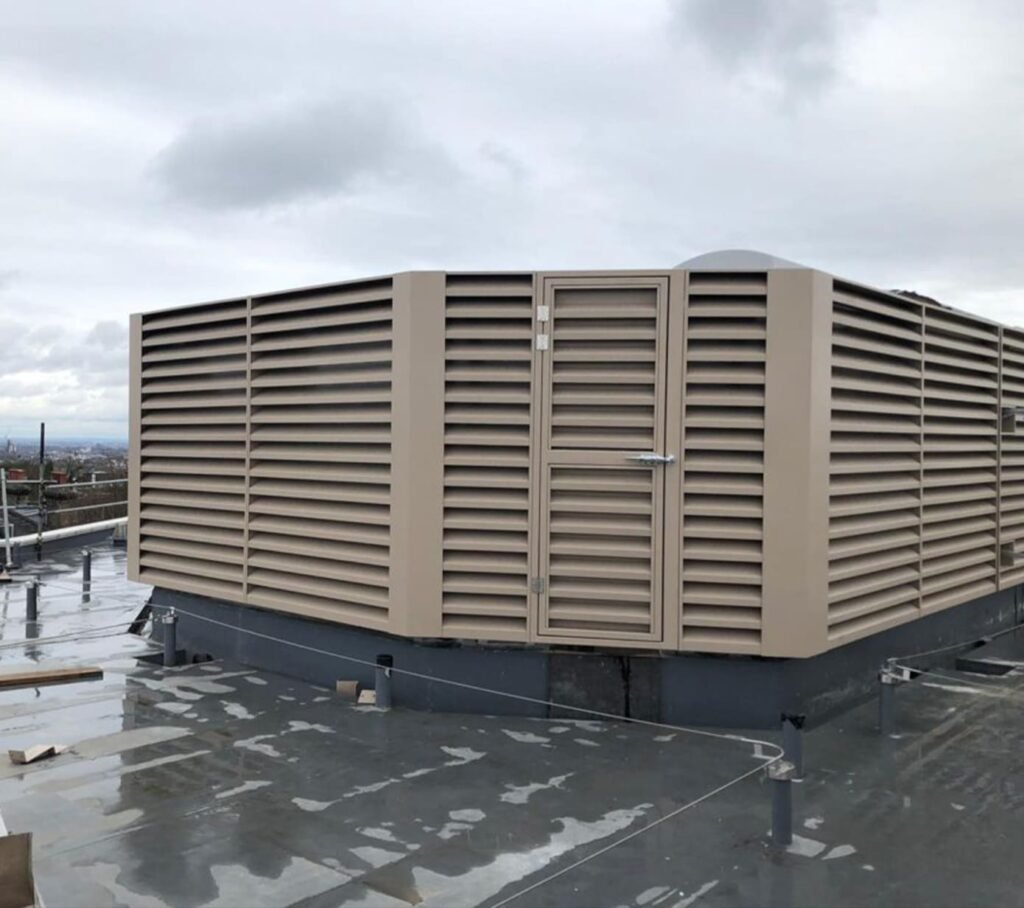Uncategorized
The Economic Case For Investing In Acoustic Screens For HVAC Equipment

The creation of pleasant and functional interior spaces is of utmost importance in contemporary building management and construction practices. The Heating, Ventilation, and Air Conditioning (HVAC) system is pivotal to this attempt since it controls the indoor climate in terms of temperature, humidity, and air quality. However, one often overlooked aspect of HVAC systems is the noise they generate. Excessive noise can not only disturb occupants but also have significant economic implications for building owners and operators. This article delves into the economic case for investing in acoustic screens for HVAC equipment, exploring how mitigating noise can lead to tangible financial benefits.
The Economic Impact Of HVAC Noise:
Noise generated by HVAC equipment can have various adverse effects on building occupants and nearby communities. Excessive noise in business environments, such as offices, stores, and hospitals, can make it hard to focus, lower productivity, and even make people sick from stress. In residential buildings, noisy HVAC systems can disrupt sleep and lower the quality of life for residents.
Moreover, HVAC noise can extend beyond the confines of a building, affecting neighbouring properties and communities. Owners and managers of the property may face resident complaints, possible legal conflicts, and harm to their reputations as a result of this. In extreme cases, regulatory fines or penalties may be imposed for violating noise ordinances.
The Economic Benefits Of Acoustic Screens:
Investing in acoustic screens for HVAC equipment offers a range of economic benefits that outweigh the initial costs of installation. Here are some key advantages:
Increased Property Value:
More people are likely to buy or rent a property with an HVAC system that is both quiet and well-maintained. By enhancing the overall comfort and desirability of a building, the value of the property can increase, leading to higher rental or sale prices.
Reduced Maintenance Costs:
There is less wear and tear on HVAC systems that are silent when they are not in use. If you ignore excessive noise, it might be a symptom of systemic inefficiencies or mechanical problems that will eventually cause expensive repairs or the equipment to fail. Acoustic screens help mitigate noise while also promoting the optimal functioning of HVAC equipment, thus reducing long-term maintenance expenses.
Energy Savings:
Acoustic screens not only dampen noise but also improve airflow and ventilation efficiency. By reducing airflow resistance and minimizing pressure drops, HVAC systems equipped with acoustic screens can operate more efficiently, consuming less energy to maintain desired indoor conditions. This translates to lower utility bills for building owners and occupants over time.
Regulatory Compliance:
Particularly in highly populated regions or close to residential zones, many towns have stringent noise restrictions. Investing in acoustic screens demonstrates a commitment to environmental stewardship and compliance with local noise ordinances, mitigating the risk of fines or legal action.
Enhanced Occupant Satisfaction And Productivity:
A quiet and comfortable indoor environment fosters higher levels of occupant satisfaction and productivity. Businesses benefit from a noise-free workplace because employees are able to concentrate better and work together more efficiently. Less HVAC noise means happier tenants who are more likely to stay put and even spread the word about the property.
Conclusion:
In conclusion, the economic case for investing in acoustic screens for HVAC equipment is compelling. By addressing the noise generated by HVAC systems, building owners and operators can unlock a myriad of benefits, including increased property value, reduced maintenance costs, energy savings, regulatory compliance, and enhanced occupant satisfaction and productivity. Acoustic screens are a worthwhile investment for any structure or facility despite the initial outlay’s seeming dauntingness. The long-term gains, however, more than cover the costs. As the demand for quiet and comfortable indoor environments continues to grow, prioritizing noise reduction in HVAC system design and operation is not just a luxury but a strategic investment in the economic success and sustainability of buildings and communities.
-

 Tech1 year ago
Tech1 year agoHow to Use a Temporary Number for WhatsApp
-

 Business2 years ago
Business2 years agoSepatuindonesia.com | Best Online Store in Indonesia
-

 Social Media2 years ago
Social Media2 years agoThe Best Methods to Download TikTok Videos Using SnapTik
-

 Technology2 years ago
Technology2 years agoTop High Paying Affiliate Programs
-

 Tech1 year ago
Tech1 year agoUnderstanding thejavasea.me Leaks Aio-TLP: A Comprehensive Guide
-

 FOOD1 year ago
FOOD1 year agoHow to Identify Pure Desi Ghee? Ultimate Guidelines for Purchasing Authentic Ghee Online
-

 Instagram3 years ago
Instagram3 years agoFree Instagram Auto Follower Without Login
-

 Instagram3 years ago
Instagram3 years agoFree Instagram Follower Without Login





















